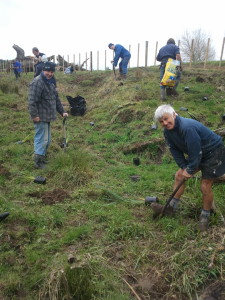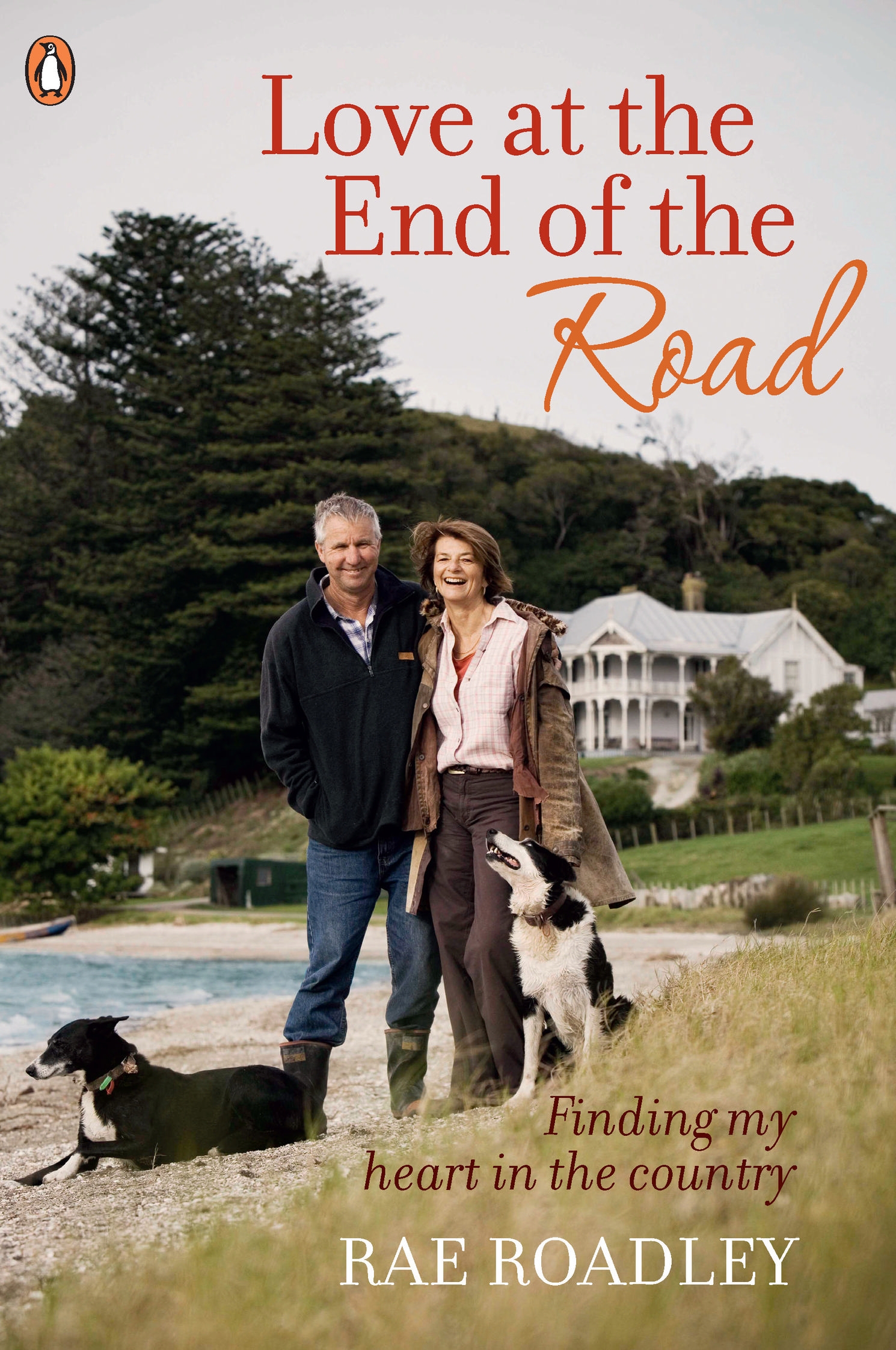
Otamatea HarbourCare members – the farmer front left – getting stuck in planting natives to improve water quality in the Kaipara Harbour.
Each morning I’m a picture of sartorial style in muddy overalls, beanie and gumboots as the farmer and I move cattle. Up until the big wet we moved young bulls in the intensive grazing system every two days, but now they’re in smaller paddocks. In larger areas they stomp the lot to muck by the end of day one and stage a mutinous break-out in day two.
As it was, there were break outs because the electric fence system took a hammering in the storm. But that’s a tiny glitch compared to what many farmers are facing, plus I’ve found returning Houdini cattle to their paddocks to be surprisingly satisfying.
My dog Floss and I sometimes walk several hundred metres to bring back escapees. One lot spotted me as I approached and came running at a gallop, like naughty schoolboys who’d been caught out. There’s always one laggard and as we plodded to get him, I expressed this to Floss in strong farmer language. The big wet does tend to inspire a colourful vocabulary, even among lucky ones like us.
The farmer calculated that at flood’s peak, only about one percent of the farm was under water. Some farmers have 90 percent of their land swamped. That morning Floss and I did face a sludgy battle of wills, but the bulls eventually galloped into a valley and up the other side and were soon with their mates. I was thrilled.
Then, last Saturday, cattle moving done, the farmer and I picked up spades and headed off to plant native trees. I also find it surprising satisfying to head off the farm clad in muddy overalls and gumboots and not give, as my dog Floss would say, a dog’s biscuit what I look like.
It was my second planting of the week and the farmer’s third. With the manager and helpers, he’d planted about 1200 natives on the edge of the farm, then he and I dug up flaxes that had taken root in his mother’s garden. After separating the big ones, we planted about 70 between the coastal fence and harbour.
“They don’t go far,” observed the farmer after we were done.
On Saturday we attended the inaugural planting day of the fledgling Otamatea HarbourCare group which has the slogan, ‘Productive land with a healthy harbour’.The team put in about 750 flaxes, cabbage trees and manuka by a waterway on a farm that borders State Highway 12. It will be a living advertisement for the group and the massive and long-term effort required to plant the edge of the Kaipara Harbour to reduce run-off and increase water quality.
Afterwards we gathered in a farm shed. As lunch came to an end, it was time for a speech acknowledging the momentous occasion. Mark Vincent, who’s taken on the task of getting the group going, drew inspiration from Winston Churchill: “Now this is not the end. It is not even the beginning of the end. But it is, perhaps, the end of the beginning.”
If spending a weekend morning in mud and gumboots (overalls optional) and leaving a legacy of coastal plants appeals, you can find out about future planting days by emailing mark.cindy.vincent @ gmail.com (remove the spaces which are there to prevent spam).




May Seager
July 29, 2014 at 8:30 pm (UTC 13) Link to this comment
hi Rae, just read your blog. Very nice and hope to read more in the future. Cheers, May
Rae Roadley
July 31, 2014 at 9:39 am (UTC 13) Link to this comment
Hi May – thank you so much – kind of you to read it and comment. Rae
Maureen
July 28, 2014 at 2:22 pm (UTC 13) Link to this comment
Nice one Rae. There is a certain satisfaction to be gained from hard slog…
Amy
July 28, 2014 at 2:08 pm (UTC 13) Link to this comment
always good to plant more trees! the world needs more (y)
As for the storm, we came off pretty lucky here in Mangawhai, apart from the odd tree down we didn’t end up with much damage.
Rae Roadley
July 31, 2014 at 9:40 am (UTC 13) Link to this comment
Thanks for visiting. Yes, seems we were among the lucky ones – have just been up north where the fences still have debris hanging off the top wire where it’s been flooded.